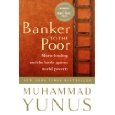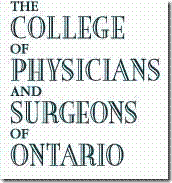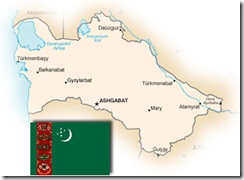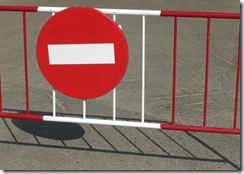Is Jesus really the only way? I concluded yesterday’s blog by asking, “So what does the Bible have to say? Let’s take look.
In Ephesians 2:1 we read that mankind, apart from God, is “dead in trespasses and sins.” According to verse 3, we are “objects of wrath” subject to the judgment of God. Apart from Christ, each one of us is spiritually dead. Romans 1:25 adds that we are “alienated from the life God.” Galatians 4:4-8 tells us that we are enslaved to false gods or false ideas about God, not knowing God. When we didn’t know God, Romans 8:7 tells us, we were “hostile to the Word of God”, disobedient to the will of God, subject to the wrath of God. We were, to put it simply, rebels without a cause and without a hope. Jesus said that mankind loves darkness rather than light (John 3:19), and Paul adds in Romans 1-3 that we all rebel against whatever spiritual light we do have. When we look at own lives with any sense of honesty, we recognize that this is true.
Even as Christians, indwelt by the Holy Spirit, recipients of new life from God, joint heirs with Christ, we still tend to walk away from God and resist His control over our life. Why is that? As we look at Scripture, we realize that there really is something, deep within each of us that resists God and His Lordship over our life. It’s been part of us since Adam’s fall (Genesis 3). As David stated it in Psalm 51:5, “Surely I was sinful at birth; sinful from the time my mother conceived me.” This rebelliousness is part of us; not from creation but as a result of the Fall. It’s a part of who we are as sinners. Little wonder that Paul describes in Ephesians 2:12 the state of those without Christ as “having no hope and without God in the world.”
Hopeless. Godless. That’s how Paul describes those who have never heard. We really are in a spiritual mess, as human beings. Read any newspaper. Read any history book. Look around you and look at how people treat each other. Look at any society. There are no “noble savages.” Look at your own life, at your deep, hidden thoughts. What does this tell you about the spirituality of mankind?
Rather than loving God with all of our heart, soul, mind, and strength (Matthew 22:37), our heart is darkened, our soul degraded, our mind depraved, our wills (our strength) bent on selfishness (Romans 1-3). Mankind is consistently revealed in Scripture as being tragically, universally, and inevitably sinful. We cannot allow ourselves any kind of romantic, noble, “Star Trek” view of mankind that sees the race as being essentially good and progressively getting better. Neither the Bible nor daily life will allow us to come to this conclusion.
Are we as bad as we could be? No, but none of us is as good as we should be. We were created to be in fellowship with God, bearers of His divine image. Jesus came to make this a reality again. Through His death, he opened the way to God (Hebrews 10:20). If it were possible to be in fellowship with God apart from Christ, then why did Jesus come to dwell among us? Why the ultimate sacrifice on God’s part? Why send His only Son, if salvation was possible apart from Him?
Only the sacrifice of the sinless one could pay the penalty for our sins. Only His death could pay the price for our salvation. Only His resurrection could give life to those who were spiritually dead.
But what about those who have never heard this gospel?
The Bible makes it clear that those who have never heard the gospel will be judged not because they did not hear or respond to the gospel, but because of their refusal to live up to whatever spiritual light they did have (Romans 1-3). As Paul looks at the heathen religions of his day, under the inspiration of the Holy Spirit, he declares in Romans 1 that they have exchanged the truth for a lie and worship the creation rather than the Creator. The Scripture is rather unanimous in its judgment that God does not view the various religious systems of the world as evidence of mankind groping after God or seeking after Him, but as being rebellion against Him (Romans 1:22-25; Deut. 32:17; Ps.106:36-39, et al.) As Karl Barth rightly pointed out, judged in the light of revelation, “religion is unbelief. It is the one great concern…of godless man.” (David Mueller, Karl Barth. Word, 1972:92) Thus, Paul concludes in Romans 3:11-12 by quoting the Old Testament, that there is really no one who seeks after God.
We may conclude, therefore, that mankind is judged by God, not because of his/her lack of faith in Christ, but because of is/her ungodliness. Not only does each individual fail to live up to God’s standards, but no one lives up to what he/she knows to be right.
I should note, however, that if there were a person in some remote (or even some not so remote) part of the world where the gospel has never been preached, but who is open to receive salvation, I believe that God would see to it that someone goes to share the gospel with that person. This may explain why God leads certain Christians to certain parts of the world to serve as missionaries. God, in His wisdom, compassion, and foresight, brings the good news to prepared hearts. We have such a man in Acts 10, a Roman by the name of Cornelius to whom God sends the apostle Peter to share with him how he might have eternal life. In no way, however, does the text indicate that he has saved prior to
Peter’s presenting the gospel to him. The need for the special revelation of God’s plan of salvation was necessary for him to receive the gift of eternal life. The Bible gives no basis for any thought of someone coming to God apart from faith in the finished work of Christ, nor apart from hearing the message of salvation from a human messenger. As Romans 10:14, 15 says, “How, then, can they call on the one they have not believed in? And how can they believe in the one of whom they have not heard? And how can they hear without someone preaching to them? And how can they preach unless they are sent? As it is written, "How beautiful are the feet of those who bring good news!"
This is the reason for the critical role that missions plays in the plan of God. God, in His wisdom, has chosen to spread the good news of His salvation through His people. To us has been given the responsibility to make disciples of all nations (Matt.28:17-20). The task of the church is not to dialogue but to evangelize and establish churches in all nations. Our calling is not to discover grace and truth in other religions, but to be instruments of grace and truth as revealed in the person of Jesus Christ; grace and truth that will set the captives free.
Someone once asked me, “Why are we so lucky to have the gospel, while others have not heard?” How would you answer?
In Genesis 12, we find God making a covenant with Abraham, establishing a relationship with him. Why? So that through Abraham all nations of the world would be blessed (Gen.12:3). Jesus echoes this in His commission to His disciples when He calls us to make disciples of all nations (Matt.28:17-20). We have been blessed in order that we may be a blessing to the world. This is why we are so “lucky.”
God has established a relationship with us so we, in turn, can bring others into a relationship with God our Father, and His Son. We have been blessed so that, through us, God might bring all people to Himself, as many as would believe. This is our responsibility as individuals and as local churches.
If we hold that people can be saved apart from Christ, why did Jesus bother to die? And if we were to say that a person could go to heaven by living a good life and being sincere, do we not end up affirming salvation by works? This, Scripture will not allow (cf. Acts 13:39; Romans 2:12, 12; 3:20; all of Galatians; Ephesians 2:8,9).
We really must keep the truth firmly in mind that there is really no such thing as an “innocent” human being. No one will be able to say to God on Judgment Day, “God, you were unfair!” In Romans 3:19. Paul points out that on that Day, every mouth will be silences because all will know that they are getting exactly what they deserve. They will know that they are receiving the just consequences for their behaviour and beliefs. In the meantime, God is reaching out, preparing hearts by His Spirit to receive the Gospel, and sending out men and women to bring the good news of what Jesus has done for them. Salvation is all a work of God, from beginning to end. Indeed, there is indication in Scripture that one of the reasons Jesus has not yet returned is that He is giving people more time to repent (Acts 3:19-22; 2 Peter 3:3-9). God is concerned about people of all nations, and in His wisdom He has chosen to use us to bring Him salvation to the world. With every blessing comes a corresponding responsibility. For this reason, it is the responsibility of every Christian to be involved in world missions to some degree. It is a critical part of what it means to be a follower of Jesus. He was lifted up on the cross so that people everywhere would be drawn to Him (John 12:32).
Is Jesus really the only way? On the basis of Scripture, we must conclude, “Yes.” Jesus, Himself, said, “I am the way and the truth and the life. No one comes to the Father except through me” (John 14:6). The apostle Paul, standing before the Jewish high court declared, “Salvation is found in no one else, for there is no other name under heaven given to men by which we must be saved" (Acts 4:12). He held to this position to the end of his life when he reminded Timothy, “For there is one God and one mediator between God and men, the man Christ Jesus, who gave himself as a ransom for all men” (1Timothy 2:5,6).
There is one God, one mediator, one name, one way to God. For those of us who have come through this one way, who have bowed before the Lord and accepted His work on the cross on our behalf, our calling is to be involved in taking this message to all people in all places. God has entrusted His life-giving message to us.
What part can you have in making it possible to every man, woman, and child in this generation to have the opportunity to hear and understand the gospel and receive Jesus Christ as their Lord and Saviour? What specifically do you think God would have you to do?





























